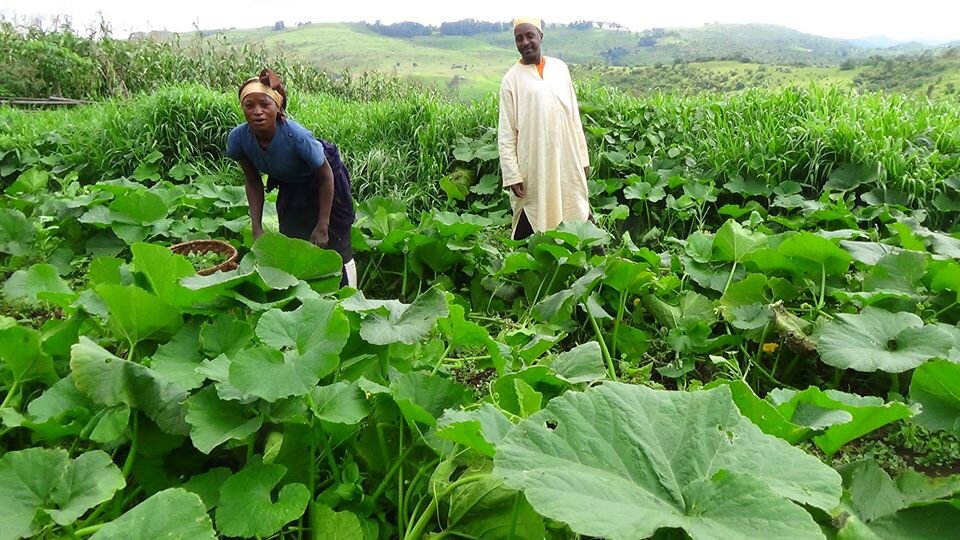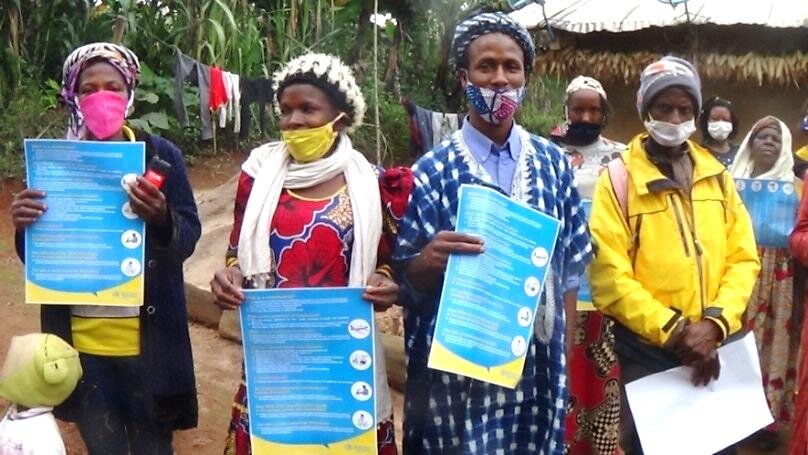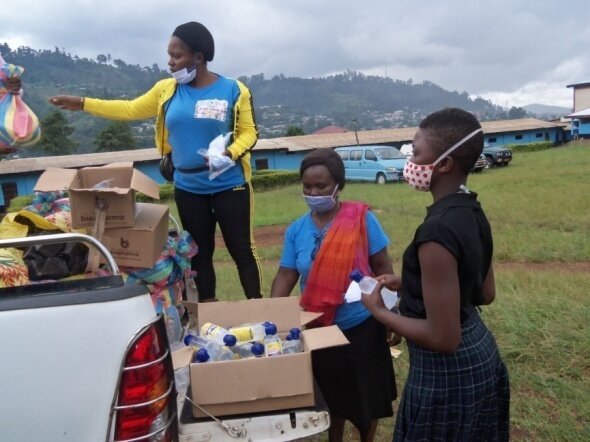COVID-19: Our response in Cameroon
The challenges in Cameroon
North West Cameroon has for a number of years been dealing with violent socio-political conflict driven by a separatist movement.
There is conflict between crop farmers and cattle herding communities over land and access to resources (e.g. water).
The socio-political situation has forced hundreds of thousands of people to flee violence in search of safety. Now, many of the people we work with are internally displaced in rural areas. They are generally hosted by friends and family and consequently are forced to live in large groups sharing scarce resources.
What United Purpose is doing...
Our partners and the communities we work with have developed coping strategies that enable us to continue our essential peace building work between farmers and grazers at this important time. Our partners are hugely resilient and used to operating in a crisis.
We are using our strong community ties and existing social cohesion structures to empower communities with essential information about COVID-19.
We have dedicated social media pages on Facebook and WhatsApp that are used to launch politically neutral, healthy and informative debates, with the aim of promoting social cohesion among young people from farmer and grazer communities. Recently, the topics and debates have been focused on COVID-19 awareness, such as sharing information from trusted sources about preventative measures, or tips for spotting fake news.
As part of our long-standing work in Cameroon, we work with communities to ensure everyone has fair access to water and can access mediation when conflict arises over natural resources. We are working with trusted groups in the community to inform people about virus symptoms and how they can protect themselves.
Our peace building initiative, which goes back almost 10 years, has brought the communities we work in access to clean water. This is not just essential for handwashing during a global pandemic, but also enables people to continue their farming and grazing livelihoods.
Over 250 internally displaced people affected by the civil war in the North West region of Cameroon, from both the Mbororo herding and Non-Mbororo farming community, have received Covid-19 kits comprising masks, hand sanitizers, soap, and some basic food items to help relieve pressure on household incomes. Hand washing basins were also distributed to be installed within communities.
Our partners, MBOSCUDA and NOWEFOR, recently took part in training on how to sensitise communities on Covid 19 prevention, which enabled them to empower displaced communities through talks on what the virus is, and preventative measures as prescribed by the World Health Organization and the Government of Cameroon. Communities were reminded about symptoms and what to do in case symptoms occur.
In late August hygiene sensitisation sessions were held with 501 people (IDPs, host families and vulnerable households) in eight communities. The sessions covered: The definition of Covid-19; signs, symptoms and modes of transmission (including through touching the face, especially the nose, mouth and eyes), Personal and community prevention of Covid-19, Treating and managing Covid-19, and related issues, Daily hygiene and sanitation practices including demonstrations of proper handwashing and wearing of face masks, Home production of hand sanitiser using the World Health Organisation’s formula and guidelines, and how to use it properly.
Hygiene kits consisting of 400 buckets, 491 hand sanitisers, 982 facemasks (two per household) and 1,656 bars of soap were distributed. The teams agreed with community members to place the wash hand buckets in strategic positions in the communities to maximize their usage. 500 Covid-19 posters were also distributed and placed at strategic locations, which attracted a lot of interest.






